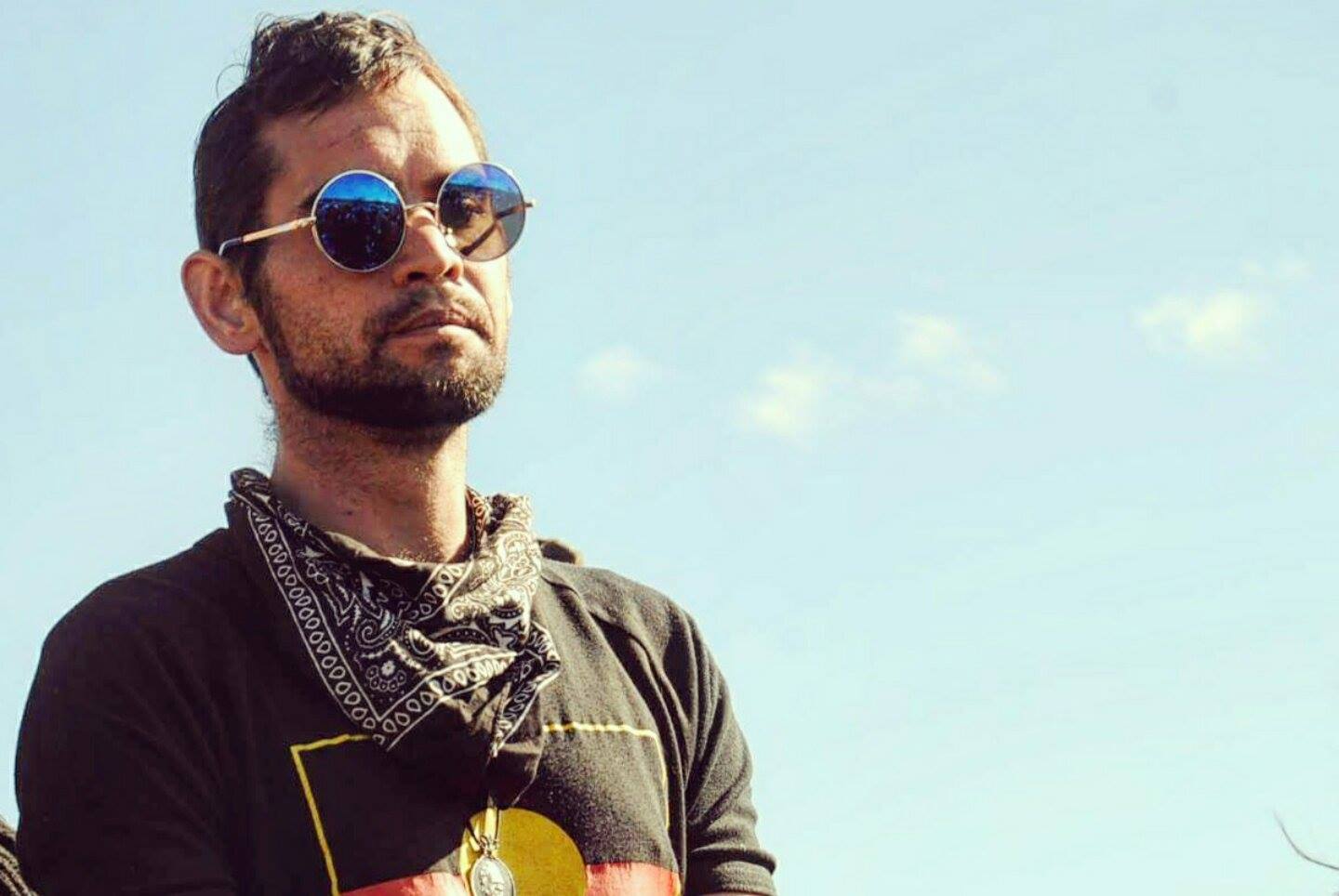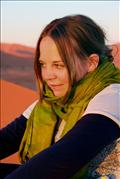
Aboriginal community activist to speak at Cambridge event organised by Gates Cambridge Scholar.
The Aboriginal peoples of Australia are leading the fight to decolonise a society set on destroying itself through ecological suicide and class and race warfare.
Stephanie Mawson
A leading Australian aboriginal community activist will be speaking about decolonisation of Australia at an event co-organised by a Gates Cambridge Scholar and the Critical Theory & Practice Seminar Series at the end of the month.
Roxley Foley [pictured] is Firekeeper of Canberra's Aboriginal Tent Embassy which represents the political rights of Aboriginal Australians. His lecture, co-organised by Gates Cambridge Scholar Stephanie Mawson, is entitled Decolonising Australia: Roxley Foley on Aboriginal Sovereignty. It will take place on 28th November at Pembroke College.
Stephanie says: "He will cover issues of ongoing Australian colonial paradigms that are contributing to the continued dispossession, assimilation and genocide of Australia's original sovereign peoples. The Aboriginal peoples of Australia are leading the fight to decolonise a society set on destroying itself through ecological suicide and class and race warfare."
The lecture will address issues ranging from "the relevance of historical revisionism and how a skewed view of history perpetuates ongoing atrocities under new euphemisms" and the meaning of self determination and land rights to how indigenous knowledge can influence ecological and economic sustainability and create a new political paradigm.
Foley is in the UK as part of a delegation campaigning for the return of several artefacts, including the Gweagal Shield held by the British Museum and several spears held by the Archaeology and Anthropology Museum in Cambridge.
The campaign is focused on artefacts that Captain Cook took from the Aborigines after a violent struggle in Botany Bay in 1770. Artefacts like the Shield have only recently come to light.
On its Facebook page, the campaign states: "Aborigines make up 3% of the Australian population with many living in conditions of abject poverty unthinkable to non-Aboriginal Australians. Aboriginal Australians have an average life expectancy 10 years shorter than non-Aboriginal Australians, and they are grossly overrepresented in Australian prisons, where even their children are tortured. Tucked away in this British Museum room with a generic name and brief explanation, the Gweagal shield is almost as well hidden as the history of violence and resistance it represents."
Stephanie [2014] is doing a PhD in History focusing on the early history of Spanish colonisation in the Philippines and broader Spanish Pacific world. She has been active in projects of community building among history students in Australia and worked as a researcher at a large trade union on campaigns that fight the inequality experienced by Australia's lowest paid workers.
*The lecture will take place on 28 November at 5.30pm in the Nihon Room, Pembroke College. For more information click here.

Stephanie Mawson
- Alumni
- Australia
- 2014 PhD History
- Wolfson College
I’m a history graduate from the University of Sydney with a strong interest in studying global history from the perspective of ordinary people. My research focus is the early modern Spanish empire, which is an interest I developed after travelling extensively through Latin America. My PhD thesis will examine the experience of empire in the Philippines and broader Spanish Pacific from the vantage point of non-Europeans. I strongly believe that we study history not just to understand the past but also to engage in the kind of future that we want to create. My research aims to break down some our commonly held assumptions of how global history developed by examining the frontiers of early modern empires that have often been marginalised within broader historiography. I have been active in projects of community building among history students in Australia and worked as a researcher at a large trade union on campaigns that fight the inequality experienced by Australia’s lowest paid workers.












